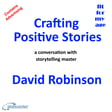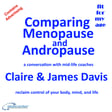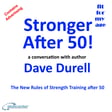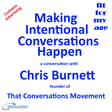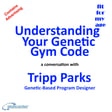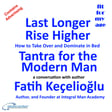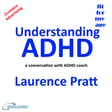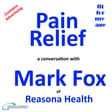
Forest for the Trees - a conversation with Michael O’Neal
Michael O’Neal owns Reform Health and Performance, a personal training gym in Birmingham Alabama, USA.
Michael is also an athlete whose athletic career was cut short by injury. Nothing unusual about that you might say, but Michael’s road to recovery was not straightforward.
In this episode of the Abeceder podcast Fit For My Age Michael O’Neal explains to host Michael Millward what he discovered during that journey about health care and how he developed a new paradigm for health, performance, and longevity in his book Forest for the Trees.
Host and guest discuss the differences in approaches to health care in Birmingham Alabama and Birmingham England, and how health care decisions are made in different places.
Michael also explains how this new paradigm helped him to define his approach to health, well-being, and performance, and how Reform Health and Performance implements that approach.
Proactive Positive Ageing.
It is always a good idea to know the risks early so that you can take appropriate actions to maintain good health, that is why we recommend The Annual Health Test from York Test.
York Test provides an Annual Health Test. An experienced phlebotomist will complete a full blood draw at your home or workplace. Hospital standard tests covering 39 different health markers are carried out in a UKAS-accredited and CQC-compliant laboratory.
A Personal Wellness Hub gives access your easy-to-understand results and guidance to help you make effective lifestyle changes anytime via your secure, personal Wellness Hub account.
Visit York Test and use this discount code AGE25.
Fit For My Age is made on Zencastr, because Zencastr is the all-in-one podcasting platform, that really does make creating content so easy.
If you would like to try podcasting using Zencastr visit zencastr.com/pricing and use our offer code ABECEDER.
You can Travel to Birmingham Alabama or Birmingham West Midlands at trade prices if you are a member of the Ultimate Travel Club. Use the link to access discounted membership.
Find out more about both Michael Millward and Michael O’Neal at Abeceder.co.uk.
Matchmaker.fm If you are a podcaster looking for interesting guests or if like Michael, you have something interesting to say Matchmaker.fm is where great hosts and great guests are matched and great podcasts are hatched. Use our offer code MILW10 for a discount on membership.
Being a Guest
If you would like to be a guest on Fit For My Age, please contact using the link at Abeceder.co.uk.
We recommend the podcasting guest training programmes available from Work Place Learning Centre.
We appreciate every like, download, and subscriber.
Thank you for listening.

